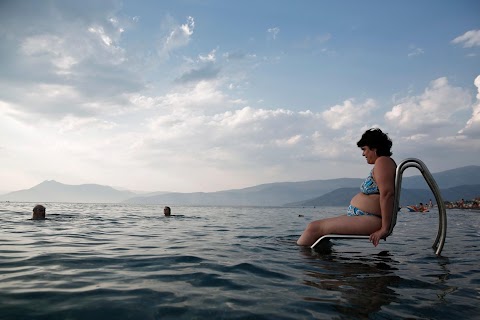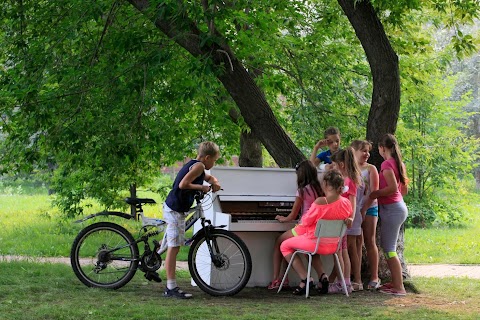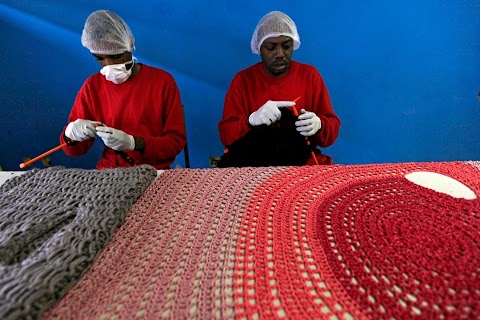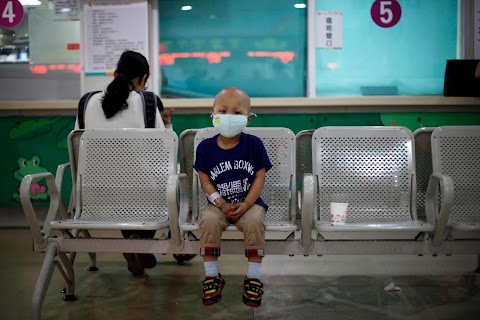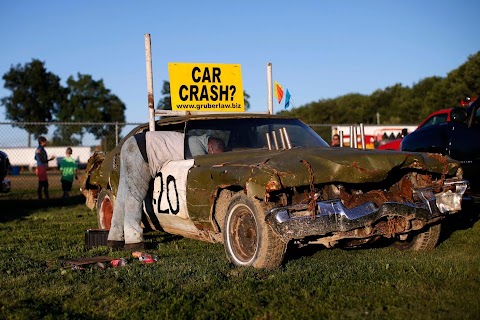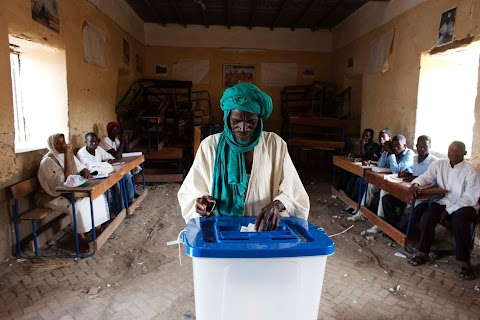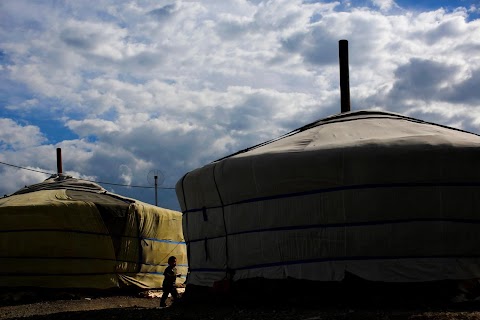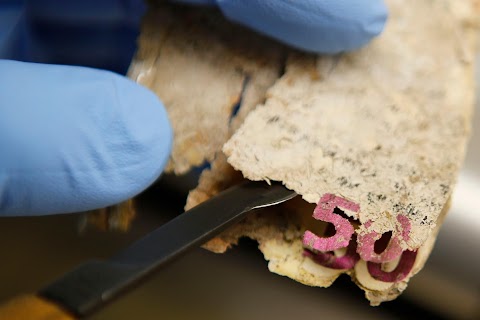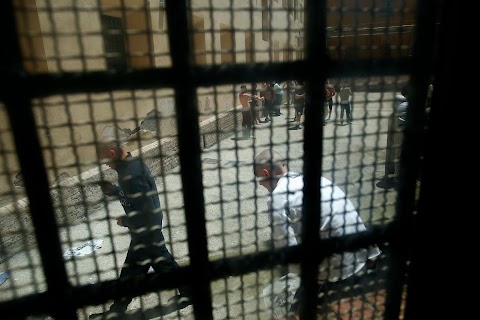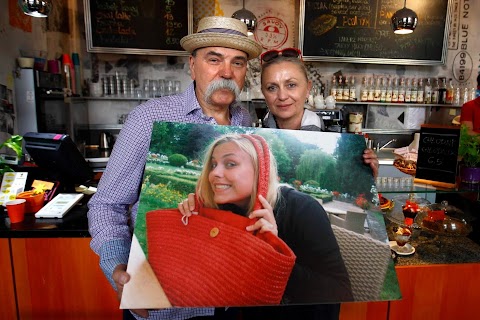
A long way from home
 Peter Andrews
Peter Andrews
Polish parents Barbara and Edward hold up a photo of their daughter Martyna, who is far from home.
The 26-year-old finished high school in the United States, studied at the London School of Fashion and now lives in London. She is among a large number of Poles who have flown the nest for other countries, in many cases taking the opportunity offered after Poland joined the European Union in 2004 to live and work in western Europe.

Monika Grzesiak, a plastic surgeon living in Warsaw, is another Polish parent who has seen her child move away. Her 22-year-old son Lukasz, whose picture she holds, graduated from New York University and found his first job in New York.
Reuters photographer Peter Andrews, who himself left Poland as a young man in the 1980s to start a new life abroad, decided to document the mothers and fathers of young emigres like Lukasz.
He made contact with a number of Polish parents whose children have moved overseas – from Western Europe to the United States – and took portraits of them holding pictures of their absent loved ones.
Slideshow

Polish pharmacist Anna Naborowska and her husband Jaroslaw, a sound engineer, pose with a photograph of their daughter Joanna. The 27-year-old emigrated to the Iberian Peninsula and presently lives and works in Barcelona, Spain.

Dorota Szmaus, a 53-year-old housewife, displays photographs of her two children Bartosz, 30, and Weronika, 25. Bartosz and Weronika both emigrated to Britain and live in Brentwood, Essex.

Malgorzata Dyszlewska, a 62-year-old teacher living in Warsaw, poses with a photograph of her daughter, Anna Davis, and her family. Davis, 29, emigrated to Britain 11 years ago and now lives and works in Kidwelly, Wales.

Katarzyna Wawrzyniak, a cleaner based in Miedzylesie, poses with a photograph of her son Daniel, who emigrated in 2005. Now 31, he currently lives with his family in Athlone, Ireland.

Hospital administrator Katarzyna Wojcicka holds a photograph of her son Maciej in his old bedroom. The 30-year-old emigrated to Ireland nine years ago when Poland joined the EU, is now married to a Polish woman named Alina and lives in Waterford, Ireland.

Tadeusz Weremczuk, a 57-year-old farmer, and his wife Maria, 54, pose with photographs of their four children, all of whom have moved to Britain. With the wave of Polish immigration to Britain, Polish is now the second most-spoken language in the country.

Civil servant Boguslawa Dobrzynska poses with a wedding photograph of her son Michal. After leaving Poland, Michal and his wife Jagoda have studied and worked in Spain, Romania and currently reside in Switzerland.

Fifty-three-year-old bank worker Hanna Mieszkowska poses with a wedding photograph of her son Piotr and his wife Ghizlane, who is of Moroccan origin. Piotr, 32, met his sweetheart during an Erasmus programme in Spain, got married in Morocco and now lives in Paris.

Polish television stylist Dorota Williams, 45, poses with a photograph of her daughter Klaudia Redzisz. Klaudia, 28, moved to Italy five years ago, where she studied at the University of Florence. She now lives in Sydney, Australia, where she works for a movie production company.
"When you are not able to see your parents often, you notice how age works on people."
I remember my mother taking me to the airport on June 10, 1981. In theory, I was leaving for three weeks, but both of us really knew that I would not be coming back. I was 19 at the time and wanted to see a different world, a world beyond the so-called Iron Curtain.
My mother didn’t show too much sadness, but I could see tears in her eyes when she said goodbye to me. I saw her twice in ten years: once after four years, when she visited my new home in Canada, and later in Germany, when the Berlin Wall was coming down.
Our contact was scarce. In those days, it was very difficult to make a call out of Poland, especially after martial law was introduced. Later, when martial law was lifted, it was a bit easier. But even so, back then we only had landlines - no mobile phones, no Internet, no Skype. Only written letters put inside envelopes, with a postage stamp sent from the post office.
It was only when the Soviet Union collapsed, and the so-called “evil empire” ceased to exist, that I was able to see my mother freely. When you are not able to see your parents often, you notice how age works on people.
At the time when I was leaving Poland, no one knew that ten years down the road the world's geo-political situation would change and that eastern European countries would join NATO and later, in 2004, the European Union, allowing many young people to travel freely, without any restrictions or prosecution.
A large number of Polish citizens made the most of the changes, deciding to try their luck abroad. Most of them went to Ireland and Britain, some chose places like Spain, Switzerland, the United States or Australia.
Freedom of movement was finally given to people and was tested by around 2 million Poles. For some of them, it has been an adventure; for some, a job opportunity. But in all cases it has been an experience shared, as it was for my mother, by their parents too.
